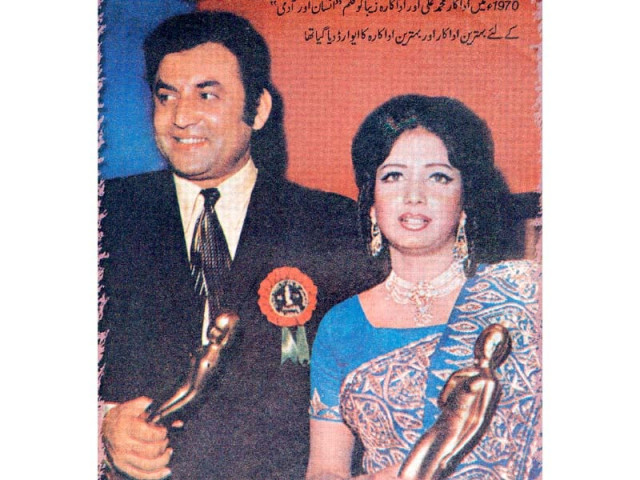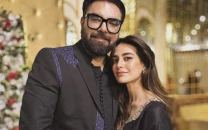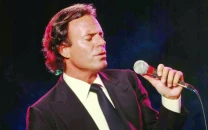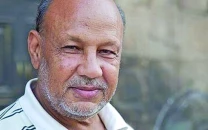In memoriam: Muhammad Ali’s lamp still burning bright
Legendary actor remembered by fraternity and fans as the year marks his ninth death anniversary

Ali’s career as a hero began with Rafique Rizvi’s film Shararat (1964). PHOTO: NIGAR GOLDEN JUBILEE EDITION
Reminiscing about their time with Ali, his former colleagues said he will always reign over Lollywood. His wife Zeba said, “I’m not complete without Ali. He was a good husband, a great father and a good friend.” On the occasion of his death anniversary, she requested his fans to make a special prayer for him. Actor Ghulam Mohiuddin feels Ali is a role model for the film industry as Pakistani artists have learnt a lot from him. Mohiuddin, whose first film with Ali was Shikwa, says he always observed punctuality on the sets. “Ali was a complete actor and his signature dialogue delivery was liked by all his colleagues and film-lovers,” he states.

According to actor Bahar Begum, Ali was a kind and sensitive man and it was difficult for him to see anyone in pain. “Ali’s personality was attractive and he was beautiful on the inside. He was a great actor but anyone who met him found him to be humble,” she shared. Recalling that her first film with Ali says, Bazi, actor Nisho Begum says, “He was an academy on his own and his films are like a curriculum for newcomers. His work is an asset for, and identification of, the Pakistani film industry.”
Ali was born on April 19, 1930, in Rampur, India, and began his career as a broadcaster at Radio Pakistan, Hyderabad, in 1956. Director Fazal Ahmad Kareem introduced him to the movie industry as a villain in Chiragh Jalta Raha (1962), a film that was inaugurated by ‘Madar-e-Millat’ Fatima Jinnah. This set the stage for what became an illustrious career of an artist, still known as one of the most memorable lead actors. His performance in the film, which critics noted outpaced the protagonist’s, sparked a new phase in the Pakistani movie industry.
In the initial years of his career, Ali, known as Ali Bi among his colleagues, performed negative roles and his career as a hero began with Rafique Rizvi’s film Shararat (1964). He worked in around 250 films and his acting stints were recognised with multiple awards. Having starred in nearly 94 films as the male lead, Ali worked with almost all the lead female actors of his time and married Zeba and the couple became known as Ali Zeb. Both Ali and Zeba featured on CNN’s 2010 list of ‘Asia’s 25 greatest actors of all time’.
Ali also directed films but, according critics, acting remained his strong suit. He is the only Pakistani to have won six Nigar awards consecutively in the first 10 years of his career. He became the first Pakistani actor to receive the Pride of Performance award and was later presented with Tamgha-e-Imtiaz. By the end of his film tenure, he was also selected as the prime minister’s advisor on cultural affairs during the PML-N government, and worked towards the promotion of the Pakistani film industry. Ali passed away in 2000, leaving behind his wife and one daughter and an indelible mark on the world of film.
Published in The Express Tribune, March 21st, 2015.
Like Life & Style on Facebook, follow @ETLifeandStyle on Twitter for the latest in fashion, gossip and entertainment.



















COMMENTS
Comments are moderated and generally will be posted if they are on-topic and not abusive.
For more information, please see our Comments FAQ